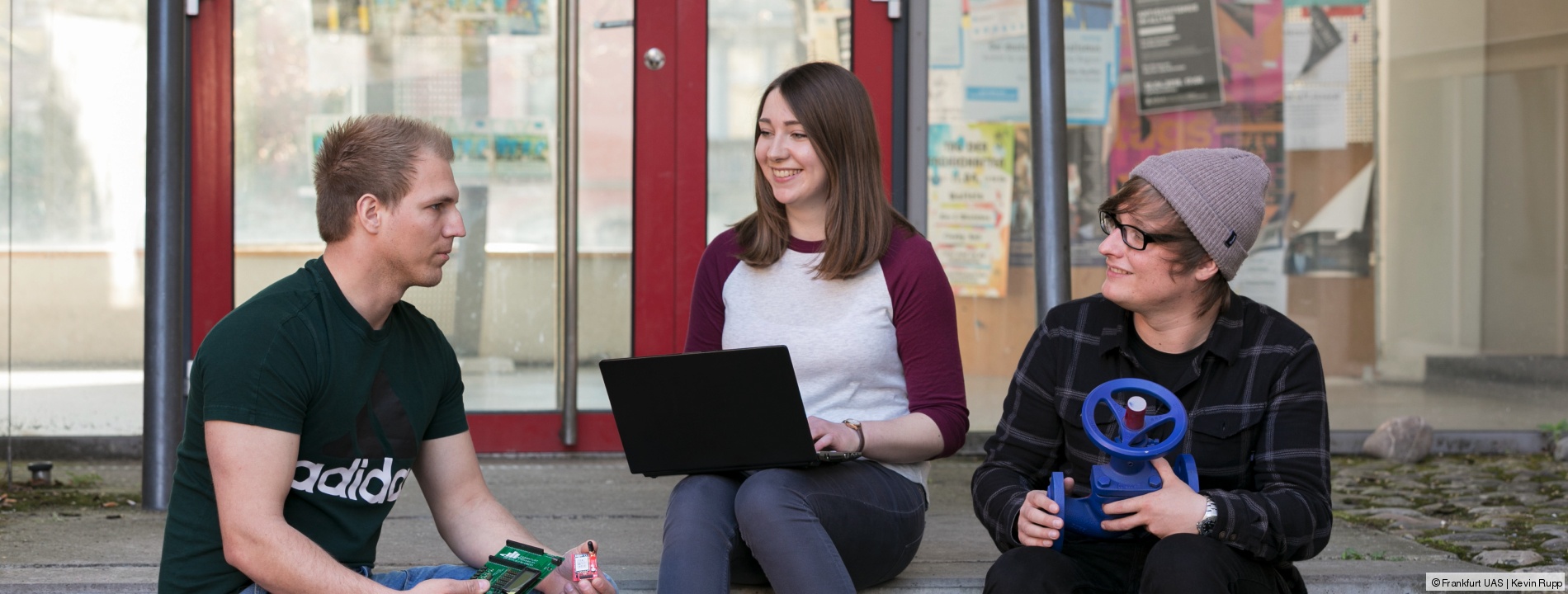With more than 5,000 students, the Computer Science and Engineering Faculty is the largest technical faculty in Frankfurt and the Rhine-Main region. The primary focus is on instructional quality. Projects with a high level of practical relevance serve to map out future occupational fields in conjunction hands-on practice and to integrate social skills such as teamwork and intercultural competencies into the transfer of technical knowledge. An additional aspect is the generally close proximity to students, who work in small groups and with easily approachable teaching staff.
The lab learning center is a key facility for learning subject-specific and interdisciplinary skills and is a quality feature of the Faculty.
Sustainability is addressed in research and teaching in the fields of sustainable product development (EcoDesign), life cycle assessment (LCA), renewable energies and energy efficiency. In light of the existential importance of global environmental changes for presentand future generations, as well as the growing relevance for professional activities, these topics are being expanded and anchored in our study program curricula.
In Faculty 2: Computer Science and Engineering – we offer 17 Bachelor’s and 9 Master’s degree programs, with modules in which the topic of sustainability is addressed either peripherally (11 Bachelor’s and 3 Master’s modules) or as a core topic (11 Bachelor’s modules and 1 Master’s module).
Sustainability Focal Points
- Environmentally compatible and recycling-friendly product and design development
- Assessment of environmental damage caused by technical products
- Technology impact assessment methodology in product development
- Energy and resource efficiency awareness
- Sustainability in design
- Linkages between sustainability and innovation
- Analysis and evaluation of technical product life cycles with their energy and material flows
- Potentials and challenges of sustainable product development
- Development of sustainable product systems and product service systems
- Reflection on the effects of technical product obsolescence
- Modelling, simulation and evaluation of environmental characteristics
- Life cycle assessment
- Application of life cycle assessment software systems and databases
- Abbreviated assessment methods
- Product Carbon Footprint
- Screening LCA
- Sustainable service life design of technical products
- Designing technically feasible, economically viable and environmentally friendly products and value chains
- Reflection on ethical, social, societal and environmentally relevant aspects of products and knowledge transfer to future work settings as engineers

